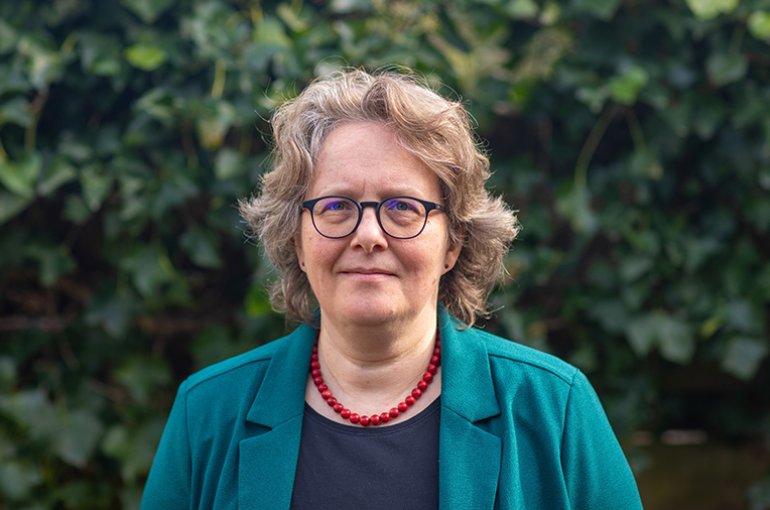Ingrid Robeyns receives 2 million euros for philosophical research on economic and ecological justice

Prof. Ingrid Robeyns (Ethics) was awarded a Consolidator Grant of 2 million euros for her project 'Can Limitarianism be justified? A Philosophical Analysis of Limits on the Distribution of Economic and Ecological Resources’ (FAIR LIMITS).
Inequalities in wealth are significant and on average increasing, and various ecological sinks and resources are overused. These circumstances should prompt us to rethink what fairness entails in the distribution of economic and ecological material resources. In particular, are there good grounds to opt for upper limits in the distribution of those resources? Are there, from a moral point of view, certain limits in our appropriation or use of material resources that should not be crossed? Can we say, either individually or collectively, that at some point we are polluting too much and using too many natural resources, or that we are having too much wealth? If so, why – and if not, why not?
These issues are at the heart of Ingrid Robeyns’s project. The prestigious and highly selective ERC Consolidator Grant will allow her to form her own team and conduct research for a five-year period (2017 - 2022).
An in-depth study of limitarianism
Theories of distributive justice have tended to focus on the worst-off, on getting everyone above a certain poverty-threshold, or on inequalities in opportunity. The current circumstances prompt philosophers to examine another distributive rule: making sure that no-one is above a certain limit in terms of wealth accumulation or the use of ecological resources. Robeyns has called this view ‘limitarianism’, which is a moral view akin yet different to egalitarianism. With a team of PhD students, and postdoc researchers, Robeyns will study:
- how we should conceptualise scarcity in the area of economic and ecological resources;
- whether there are any strong reasons to endorse limitarianism in economic resources;
- which objections can be raised against limitarianism in wealth and income, and whether these objections can be rebutted;
- whether there are any strong reasons to endorse limitarianism in ecological resources;
- which objections can be raised against limitarianism in ecological resources, and whether these objections can be rebutted;
- whether the philosophy of justice should reconsider its focus on the government as the main agent of justice, and if so, why.
Changing the paradigm of distributive justice
The FAIR LIMITS project will not only push the boundaries of the philosophy of distributive justice, but also pose some fundamental questions of the contemporary dominant paradigm in thinking about justice. Methodologically, this will be done by developing methods for normative political philosophy in non-ideal conditions. In addition, FAIR LIMITS also entails a critical dialogue with non-liberal philosophies, such as Confucian philosophy, African Philosophy, and Indigenous philosophies, to reconsider the soundness of basic assumptions in contemporary liberal theories of justice. FAIR LIMITS thus has the potential to contribute to a paradigm shift in philosophical analysis of questions of distributive justice.
Ethics of Institutions
Ingrid Robeyns holds the designated chair Ethics of Institutions from the Strategic Theme Institutions for Open Societies at Utrecht University. She works at the Ethics Institute of the Department of Philosophy and Religious studies. Her research focuses on ethics and normative political philosophy, specifically on various questions of justice and other societal values, often in combination with interdisciplinary research.

